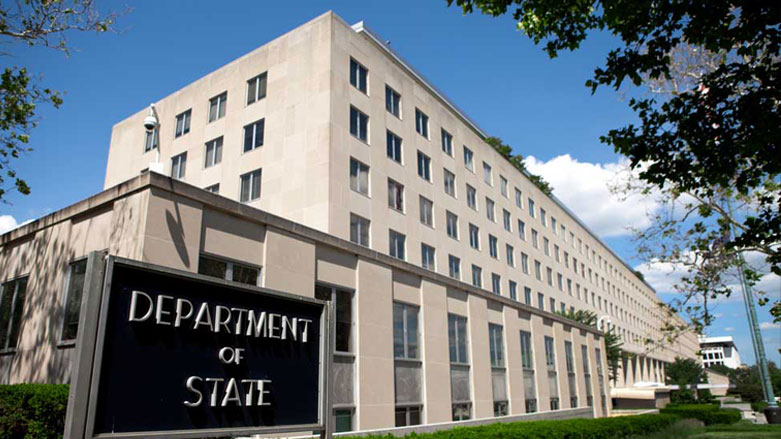US says no JCPOA renewal if Iran sticks to demands, as EU foreign policy chief pays surprise visit to Tehran
“Iran needs to decide to drop their additional demands that go beyond the JCPOA.”

WASHINGTON DC, United States (Kurdistan24) -- On Friday, the US State Department reiterated its established position regarding the renewal of the Iran nuclear deal, formally known as the Joint Comprehensive Plan of Action (JCPOA.)
There will be no deal, Kurdistan 24 was told, if Tehran sticks to the supplementary demand introduced in March: that the US remove Iran’s Islamic Revolutionary Guard Corps (IRGC) from its list of Foreign Terrorist Organizations.
The Biden administration rejected that demand then and continues to do so now. As a State Department spokesperson told Kurdistan 24 late on Friday, “We are prepared to immediately conclude and implement the deal we negotiated in Vienna for mutual return to full implementation of the JCPOA.”
Yet for that to happen, the spokesperson continued, “Iran needs to decide to drop their additional demands that go beyond the JCPOA.”
The State Department statement responded to a query from Kurdistan 24. It repeats a position that State Department Spokesperson Ned Price articulated at a June 14 press briefing.
The statement holds particular significance since the European Union (EU) announced earlier the same day that its foreign policy chief, Josep Borrell, would make a two-day visit to Tehran, starting later on Friday.
Borrell’s trip comes one day after the Iranian and Russian Foreign Ministers met in Tehran. In a joint press conference following their meeting, they each called for concluding an agreement on renewing the JCPOA.
Such negotiations began in Vienna in April 2021 but have been suspended since March due to Tehran’s demand that the US delist the IRGC as a terrorist organization.
"I hope we can reach the final point of the [JCPOA] agreement in the near future with realism from the American side," Iran’s Foreign Minister, Hossein Amir-Abdollahian, said on Thursday. Russia’s Foreign Minister Sergei Lavrov, for his part, claimed that his country, "along with other participants in the JCPOA," was "making every effort to repair the American error, when the United States left the JCPOA.”
Read More: Iranian President: US, NATO responsible for Ukraine crisis
However, there was no clear indication on Thursday that Iran was prepared to drop its demand for a delisting of the IRGC.
Thus, it is unclear what prompted Borrell’s hurried trip to Tehran. Perhaps some party told him that Tehran would compromise with Washington, thereby facilitating a return to the JCPOA. Or there might have been some other reason.
The Biden administration has from the start aspired to renew the JCPOA, which former President Donald Trump abrogated in 2018. With the war in Ukraine, it now has an additional, quite strong, reason to want the agreement renewed.
Washington and the EU would like to see Iranian oil exports resume, as the price of gasoline is higher than ever, due to Russia’s invasion of Ukraine and the sanctions that the US and EU imposed on its energy exports.
Russia’s perspective is the opposite, of course. It is using the energy crisis as a form of counter-pressure on those opposing Moscow.
Presumably, a diplomat as experienced as Borrell would not undertake a visit to Tehran without sound assurances that it would be worthwhile.
Westerners, however, have a long history of misunderstanding Tehran, dating back to the “arms-for-hostages” dealings of the Ronald Reagan administration in the 1980s, which Israelis thought would promote “moderates” in Tehran.
There has been no early news about Borrell’s trip. However, more information will, presumably, soon emerge about what, if anything, he has accomplished.